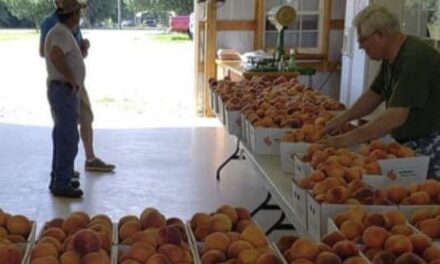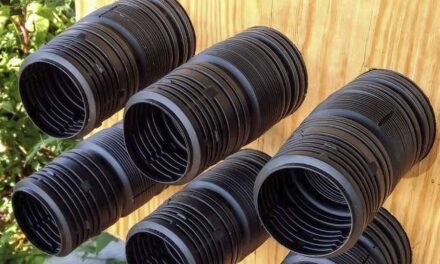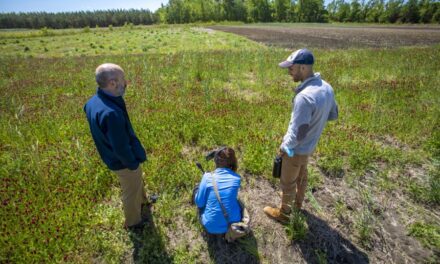Rental Program Gives Small Farmers the Advantages of Plasticulture
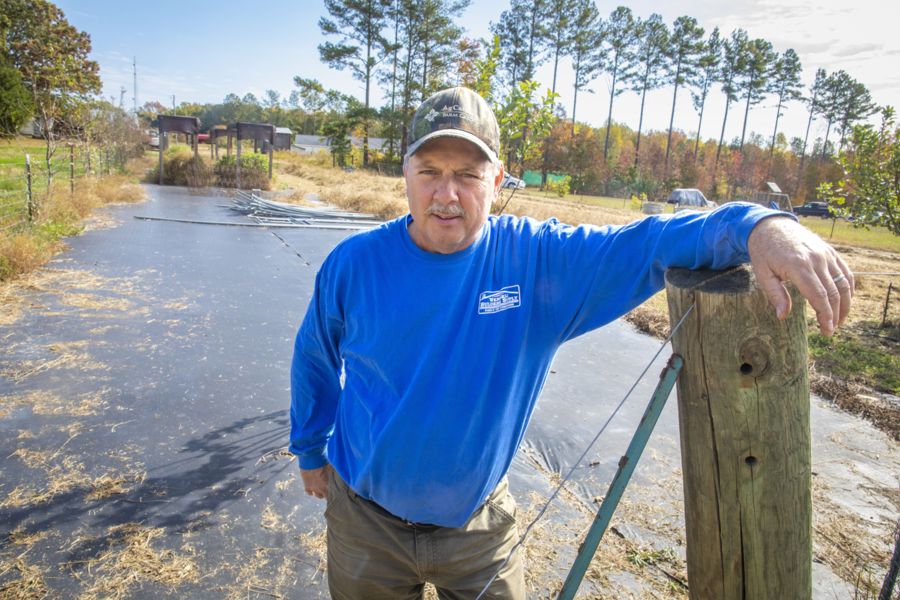
Joe Nusser, a farmer near Zebulon in Franklin County, is straightforward when he talks about the value of using plasticulture on his farm. “With the lack of rain and the heat we’ve had, I would’ve lost all my plants,” said Nusser, who farms about 15 acres and raises beef cattle. “I wouldn’t have had any production without the plastic mulch to protect the plants and hold in the moisture.” For Nusser, the program helped him produce a crop of juicy watermelon in 2022 as well as peppers, squash and zucchini.
Joe Nusser, a farmer near Zebulon in Franklin County, is straightforward when he talks about the value of using plasticulture on his farm.
“With the lack of rain and the heat we’ve had, I would’ve lost all my plants,” said Nusser, who farms about 15 acres and raises beef cattle. “I wouldn’t have had any production without the plastic mulch to protect the plants and hold in the moisture.”
Instead, Nusser planted more this year because he knew he could avoid water problems by using plastic mulch. Because plasticulture is expensive and beyond the reach of many small farmers, he turned to Cooperative Extension at N.C. A&T for help.
“Due to the high initial cost of purchasing plasticulture equipment, small farmers do not routinely take advantage of the benefits of plasticulture production,” said Randy Fulk, Extension associate in horticulture production at Extension at A&T.
Among those benefits are earlier harvests, better weed control, enhanced watering efficiency, and better plant nutrition by targeting nutrient applications through drip irrigation lines that run underneath the plastic layer. Plasticulture production also results in a cleaner crop—since no soil splashes on the crop during rains—reduces water usage, reduces disease pressure, and can save farmers money by reducing the amount of fertilizers needed. Plasticulture methods can also increase yields and profits for small farmers, said Fulk.
To make plasticulture production more affordable for small farmers, Extension at A&T created a Plasticulture Equipment Rental/Cash Back program in 2018. The equipment is provided at county Extension centers across the state at a rental cost of $25 a day. The savings is significant; an RB448 plastic mulch layer costs about $2,100, according to Fulk. Given the $25 a day rental cost, a farmer can save as much as $2,075 by renting compared to buying their own mulch layer. In addition to helping farmers save money, the rental program focuses on educating farmers about the value of plasticulture.
Julius Griffin, owner and operator of Jewels of Health, LLC in Louisburg, has used plasticulture for the past four years on his small organic farm. Without the rental program, the plastic mulch and the tractor and other equipment needed for installing it could have cost him as much as $35,000 over those years, he said.
“It’s greatly beneficial for weed control and really helps out with the bottom line because you don’t have to buy expensive equipment you only use once a year,” he said.
Both Griffin and Nusser, who is president of the NC Small Farm Association, learned about the program from William Landis, the agriculture and natural resources agent in Franklin County. Landis, who is a nonvoting member of the Small Farm Association Board, scheduled a demonstration on Nusser’s farm last year and in spring 2022, Nusser took advantage of the program and rented the equipment needed to roll out and install the plastic and drip tubes.
“One reason I wanted to try plasticulture was to have a water source,” he said. “Overhead watering with sprinklers just evaporates before the water can sink in. Now, I can turn the drip system on for about an hour in the evening and the plastic will hold the moisture in.”
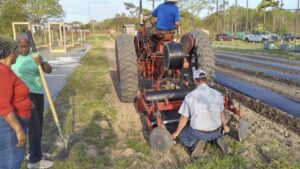
Photo from the collection of William Landis, the agriculture and natural resources agent in Franklin County, who scheduled this demonstration on Nusser’s farm last year. Nusser took advantage of the program and rented the equipment needed to roll out and install the plastic and drip tubes.
Researchers with Extension and the College of Agriculture and Environmental Sciences also stay abreast of the latest developments in plasticulture. A research trial at the N.C. A&T University Farm evaluates the performance of crops using mulches of different colors. Another research project examines five types of degradable plastic mulch in an effort to cut down on plastic waste generated by plasticulture.
“The use of pigmented mulches represents potential increased revenue for small farmers,” said Fulk. “In terms of the degradable mulch trial, it could mean labor cost savings and environmental benefits.”
For Nusser, the program helped him produce a crop of juicy watermelon in 2022 as well as peppers, squash and zucchini. Griffin also produced watermelons this year as well as organic vegetables and ginger.
‘This is a great program to have available for someone like me,” said Nusser. “I don’t have to worry about storage or maintenance. The only thing I have to do is clean (the equipment) and take it back.”
Added Griffin, “I most definitely would recommend this program. Contact your local Extension office and talk with them about what you need and how they can help you.”
This is what he said but the numbers don’t add up. $2,100 x 4 is 8,400. What am I missing? I assume they also rent the equipment to lay the plastic.
